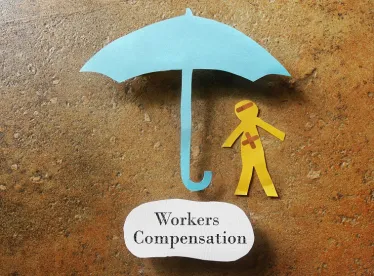Employers should recognize three common mistakes in determining a valid workers’ compensation claim and in preparing to defend an invalid claim:
1. Failure to Investigate Thoroughly
An initial thorough investigation of a workers’ compensation claim can be the key to determining a valid claim or a successful defense to an invalid claim at hearing. Early investigation allows for comprehensive documents-gathering and discovery. An immediate investigation normally allows unfettered access to the injured worker while he or she is still unrepresented. The employer should have a checklist of information needed and complete it.
-
The investigator should learn about the employee, including:
-
Identifying information such as name, nickname, maiden name and previous names
-
Address, current and previous
-
Phone number, pager number and cellular number
-
Social Security number and drivers’ license number
-
Date of hire (state hired, if applicable)
-
Vehicle - interest (type, year and license number)
-
Hobbies
-
The investigator should learn about the injury, such as:
-
Can the employee clearly state the time and date of the injury?
-
What body part was affected?
-
What was the source of the injury? Machines, hand tools, slippery floors?
-
What was the type of injury sustained? (fall, struck by object, repetitive motion)
-
Were there witnesses to the injurious event?
-
Work process involved?
-
To whom was the injury reported?
-
Time and date the injury was reported?
-
Shift, if applicable?
-
Oral statement from injured worker
-
Failing to Obtain All Medical Evidence
Obtaining medical records is a necessary part of the evaluation and defense of a workers’ compensation claim. The existence of contemporaneous medical records is key to determining the validity of a workers’ compensation claim. Medical records, both before and after the injury, can also be vital in determining or defending a claim.
-
Do the contemporaneous medical records support the claimant’s physical complaints?
-
Has the claimant been treated for the affected body part in the past?
-
Does the claimant frequently change physicians or medical providers?
-
Does the claimant change physicians when a release for full duty work has been issued?
-
Do medical reports provide information that is inconsistent with the appearance or behavior of the injured person (i.e. the claimant appears at the physician with callused hands or a sun burn consistent with outside work)?
3. Not Being “Hearing Ready”
The employer should not assume the injured worker’s failure to retain counsel or submit a specific form indicating a diagnosis is causally related will equate to a successful hearing outcome. The hearing officer evaluates the weight and credibility of evidence. While it may be clear to the employer that pre- and post-injury records do not support the claim, the hearing officer may not agree. A hearing officer may very well be looking for defense medical to rely upon. It is good practice to help the hearing officer with specific evidence upon which he can rely in denying a claim. A medical record review or examination is often needed and without it, can make the difference between an allowed claim and a denied one.
Remember: investigate, obtain medical records and be “Hearing Ready.”




 />i
/>i

